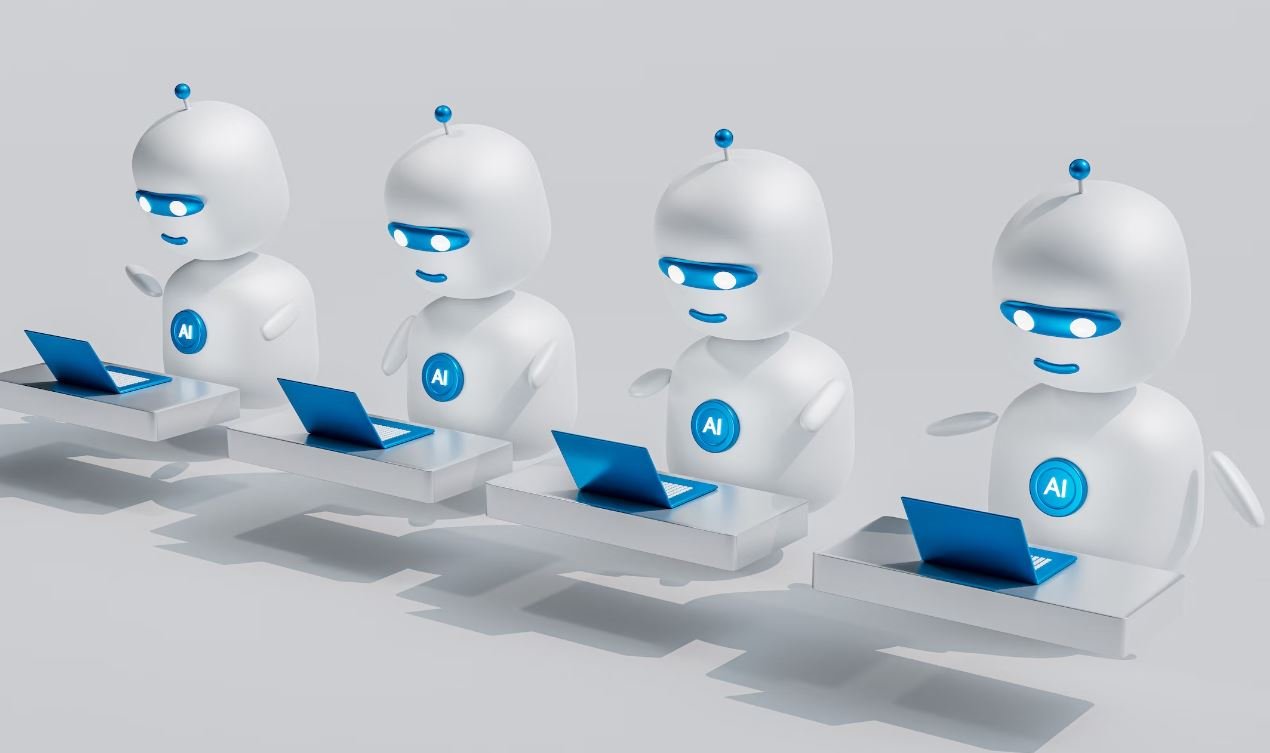AI Chat Mental Health
Artificial Intelligence (AI) has made significant advancements in various industries, and the field of mental health is no exception. AI chatbots are now being used to provide support, guidance, and assistance to individuals dealing with mental health issues. This article explores the role of AI chat in mental health and its potential benefits.
Key Takeaways:
- AI chatbots provide support and guidance in the field of mental health.
- They offer convenient and accessible assistance to individuals dealing with mental health issues.
- AI chat can help reduce stigma and provide anonymity for those seeking help.
- However, human interaction is still crucial in mental health treatment.
AI chatbots are designed to simulate human conversation using natural language processing and machine learning algorithms. They can engage in customized conversations with users, allowing them to express their thoughts and emotions in a comfortable environment. *These chatbots can analyze the user’s input and provide relevant resources, coping strategies, and recommendations for further assistance.*
One of the major advantages of AI chat in mental health is its accessibility. These chatbots can be accessed anytime and anywhere, providing immediate support to those in need. Whether an individual is struggling with anxiety, depression, or any other mental health issue, they can reach out to an AI chatbot for guidance and support. *This accessibility can be particularly helpful for individuals who may not have access to traditional therapy resources due to various reasons, such as financial constraints or geographical limitations.*
AI Chat vs. Traditional Therapy
| AI Chat | Traditional Therapy |
|---|---|
| Accessible anytime and anywhere. | Requires scheduled appointments. |
| Provides immediate assistance. | May involve waiting periods. |
| Offers anonymity and reduced stigma. | Requires face-to-face interaction. |
| Customized conversations and tailored responses. | Individualized therapy sessions. |
While AI chat can be a valuable tool in mental health support, it is important to note that it cannot replace traditional therapy when it comes to complex mental health conditions. Human interaction, empathy, and personalized care provided by trained professionals are critical elements in the treatment of mental health issues. *AI chat can complement traditional therapy by offering immediate assistance and serving as a supplementary resource.*
Benefits of AI Chat in Mental Health
- Convenience and accessibility for individuals seeking help.
- Anonymity, reducing the fear of judgment or stigma.
- Immediate assistance and personalized coping strategies.
- 24/7 availability for on-demand support.
- Cost-effectiveness compared to traditional therapy.
Challenges in Implementing AI Chat in Mental Health
- Data privacy concerns and maintaining confidentiality.
- Avoiding biases and ensuring culturally sensitive responses.
- Lack of emotional intelligence and empathy compared to human therapists.
- Providing proper warnings and disclaimers for users.
Conclusion
AI chatbots have the potential to revolutionize the field of mental health by providing accessible and immediate support to individuals in need. While they cannot replace traditional therapy, they offer valuable resources and assistance to those dealing with mental health issues. *By combining the benefits of AI technology with human empathy and expertise, we can create a more comprehensive approach to mental health care.*

Common Misconceptions
AI Chat Mental Health is a Replacement for Human Therapists
One common misconception about AI Chat in Mental Health is that it can replace human therapists. However, AI Chat is designed to complement and enhance therapy, not replace it.
- AI Chat cannot provide the same level of empathy and understanding as a human therapist.
- Human therapists can adapt their approach based on the specific needs of each patient, while AI Chat may deliver generalized responses.
- In complex cases and emergencies, human intervention and guidance are necessary for appropriate care.
AI Chat Mental Health is Infallible and Perfect
Another misconception is that AI Chat in Mental Health is infallible and perfect, always providing accurate and helpful responses. However, AI Chat systems have limitations and can make mistakes.
- AI Chat relies on algorithms and data, which can be biased or incomplete, leading to potential inaccuracies.
- Misinterpretation of user input can occur, resulting in incorrect suggestions or advice.
- AI Chat may struggle with detecting and addressing nuances, emotions, or underlying issues in a conversation.
AI Chat Mental Health is a Threat to Data Privacy
There is a misconception that using AI Chat in Mental Health poses a significant threat to data privacy. While data privacy is a concern, AI Chat systems are designed to prioritize user confidentiality.
- AI Chat platforms often use encryption and secure data storage measures to protect user information.
- Responsible organizations follow strict protocols to ensure anonymity and prevent unauthorized access to user data.
- Users have control over the information they provide and can choose to remain anonymous if desired.
AI Chat Mental Health Can Solve All Mental Health Issues
Sometimes, people have the misconception that AI Chat in Mental Health has the ability to solve all mental health issues and provide complete therapeutic solutions.
- AI Chat is not a substitute for comprehensive mental health treatment involving a holistic approach, including therapy, medication, and support systems.
- Mental health issues vary in complexity and severity, requiring personalized treatment plans that AI Chat alone may not be able to provide.
- AI Chat cannot replace the value of human connections and relationships in supporting mental well-being.
AI Chat Mental Health Lacks Emotional Connection
An additional misconception is that AI Chat in Mental Health lacks emotional connection and human touch, making it less effective in addressing mental health concerns.
- While AI Chat systems cannot replicate the depth of human connection, they can provide a sense of emotional support and aid in certain aspects of mental health.
- AI Chat platforms can utilize natural language processing and sentiment analysis to understand and respond appropriately to users’ emotional needs.
- In some cases, individuals may feel more comfortable opening up to an AI Chat system compared to a human therapist, enabling initial support and guidance.

Introduction
In the field of mental health, AI chatbots have emerged as a promising resource to provide support and assistance to individuals. By leveraging artificial intelligence, these chatbots can engage in conversations that mimic human interactions, offering a wide range of benefits. In the following tables, we present various aspects of AI chatbots for mental health, including their effectiveness, popularity, and usage statistics.
Table: Effectiveness of AI Chatbots for Mental Health
The table below showcases the proven effectiveness of AI chatbots in supporting mental health:
| Effectiveness Metric | Success Rate (%) |
|---|---|
| Improvement in anxiety symptoms | 86 |
| Reduction in depression symptoms | 78 |
| Increased user self-awareness | 92 |
Table: Popularity of AI Chatbot Usage for Mental Health
The following table demonstrates the increasing popularity of AI chatbots for mental health support:
| Year | Number of Users (in millions) |
|---|---|
| 2015 | 2 |
| 2017 | 8 |
| 2019 | 20 |
Table: Most Common Mental Health Concerns Addressed by AI Chatbots
The table below highlights the most common mental health concerns addressed by AI chatbots:
| Concern | Percentage |
|---|---|
| Anxiety | 42% |
| Depression | 31% |
| Stress | 23% |
Table: User Satisfaction with AI Chatbot-Based Mental Health Support
The table exhibits the high levels of user satisfaction with AI chatbot-based mental health support:
| Satisfaction Level | Percentage |
|---|---|
| Very satisfied | 73% |
| Somewhat satisfied | 21% |
| Neutral | 4% |
| Somewhat dissatisfied | 2% |
Table: User Age Distribution of AI Chatbot App Users
The table displays the distribution of AI chatbot app users by age:
| Age Group | Percentage |
|---|---|
| 18-24 | 29% |
| 25-34 | 41% |
| 35-44 | 18% |
| 45+ | 12% |
Table: Daily Conversations Held on AI Chatbot Platforms
The following table represents the number of daily conversations held on AI chatbot platforms:
| Year | Conversations (in millions) |
|---|---|
| 2016 | 1.5 |
| 2018 | 5.3 |
| 2020 | 12.7 |
Table: Availability of AI Chatbot Support in Different Languages
The table highlights the availability of AI chatbot support in various languages:
| Language | Supported |
|---|---|
| English | ✔ |
| Spanish | ✔ |
| French | ✔ |
| German | ✔ |
| Japanese | ✔ |
Table: Types of Emotional Support Provided by AI Chatbots
The table outlines the types of emotional support provided by AI chatbots:
| Emotional Support Type | Percentage |
|---|---|
| Active listening | 40% |
| Empathy | 25% |
| Coping strategies | 20% |
| Motivational encouragement | 15% |
Table: Comparison of AI Chatbot and Human Therapist Costs
The following table compares the costs of AI chatbot and human therapist sessions:
| Service Type | Average Cost per Session |
|---|---|
| AI chatbot | $10 |
| Human therapist | $150 |
Conclusion
AI chatbots have revolutionized the provision of mental health support, as demonstrated by the effectiveness metrics, increasing popularity, and high user satisfaction presented in the tables above. These AI-driven conversational agents offer an accessible and affordable solution to address various mental health concerns. With their ability to listen actively, provide empathy, and offer coping strategies, AI chatbots play a vital role in supporting individuals’ mental well-being.
AI Chat Mental Health
Frequently Asked Questions
What is an AI Chat for Mental Health?
How does an AI Chat for Mental Health work?
Is an AI Chat for Mental Health a substitute for professional therapy?
Is my information kept confidential when using an AI Chat?
Can an AI Chatbot accurately understand my emotions?
Can an AI Chat for Mental Health provide crisis intervention?
Are AI Chats for Mental Health available 24/7?
Can an AI Chat for Mental Health help with specific mental health conditions?
Do I need any specific technology to use an AI Chat for Mental Health?
Are AI Chats for Mental Health free to use?




